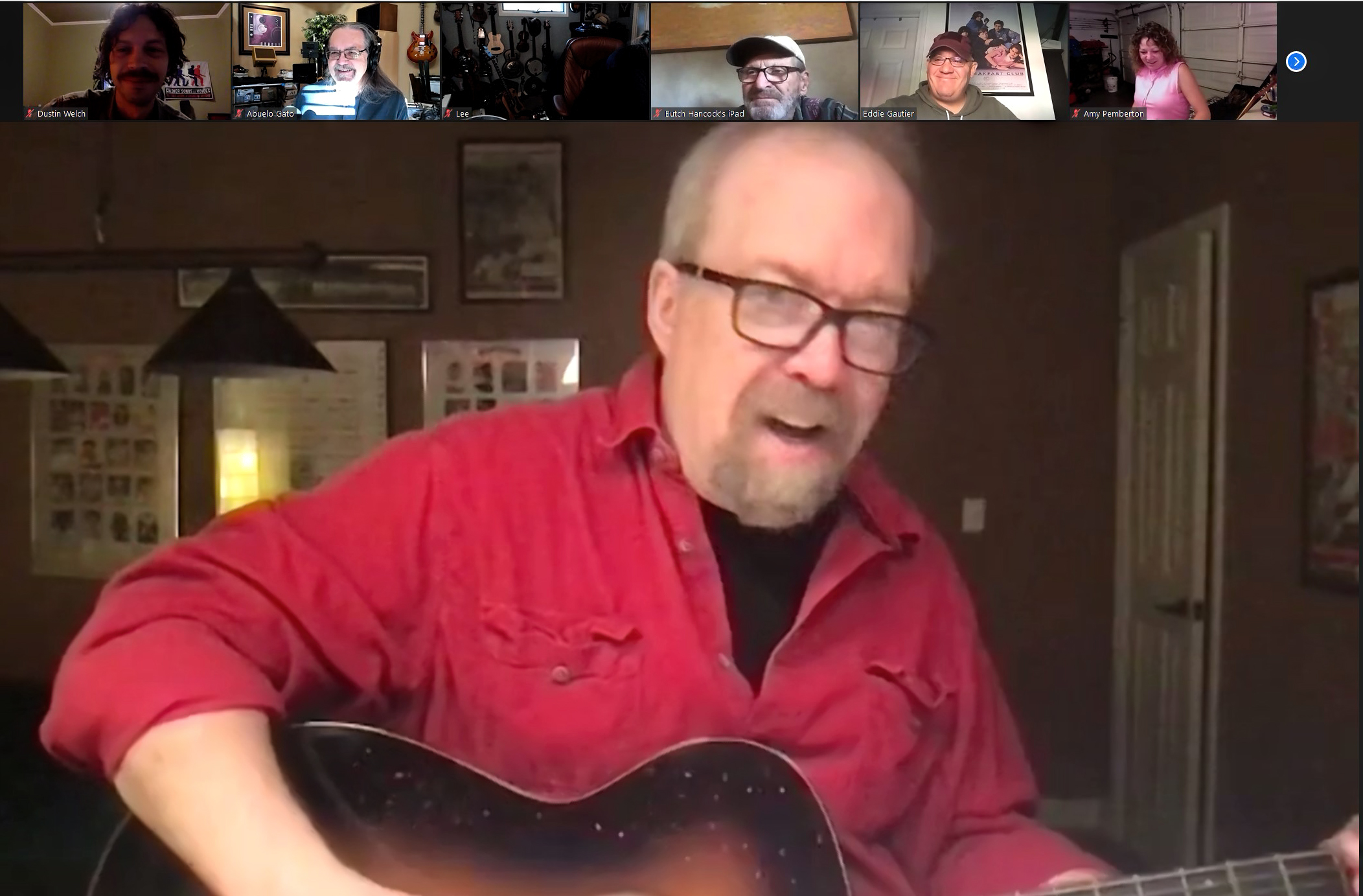2012 inductee Don Schlitz conducted an inspiring SHOF Master Session via Zoom hosted by Soldier Songs & Voices and founder Dustin Welch on Saturday, October 6.
Don Schlitz has written songs that are firmly entrenched in the popular music soundtrack of the world with a huge catalogue of hits, including such classics as The Gambler, On the Other Hand, Forever and Ever, Amen, Deeper Than the Holler, He Thinks He’ll Keep Her, When You Say Nothing at All, One Promise Too Late, You Can’t Make Old Friends and many, many more. His songs have played major roles in the careers of Kenny Rogers, Randy Travis, The Judds, The Nitty Gritty Dirt Band, Tanya Tucker, Mary Chapin Carpenter, Keith Whitley, Alison Krauss, and many other performers. Schlitz has garnered multiple awards, such as ASCAP Country Songwriter of the Year for four consecutive years, three CMA Song of the Year Awards, two ACM Song of the Year awards and two Grammy’s. He was inducted into the Songwriters Hall of Fame in 2012 and the Country Music Hall of Fame in 2017.
Soldier Songs & Voices is a nonprofit organization providing free instruments and songwriting lessons to veterans as a form of post-conflict care, with the goal of creating communities that honor veterans of all generations. Welch kicked off the Session by introducing Don Schlitz.
Speaking from the heart, Schlitz began by saying he is the proud son of a proud marine, and that he hoped "soldiers hear how much we thank you for your service.” He then played his hit song The Gambler for everyone, and during the course of the Session he enthralled viewers with performances of some of his other hits such as Nothin’ At All, Red Satin Dress and Bad Decisions.
He promised he would tell those in attendance that day, “Everything I know about songwriting...it’s all about communication, and there's a certain limited number of ideas to communicate. You'll get clever hook lines no matter what, and you'll find those in the ideas. There are an infinite number of ways to look at these ideas, and the reason they become a reason to write is your unique perspective. Find out what is going on in the idea and write about it.”
“There's a certain meter that enables songs to move from one point to another, and there are several ways to approach it. Find the form that fits your idea. See how songs are laid out. Find the idea and find several ways to get there.”
Schlitz went on to say, “Words, language, rhymes and the truth are important and powerful...never look down your nose at the person you're talking to in a song, and always assume they are as smart as you are. Work on creating elements of surprise, suspense, repetition and hope in a song that the music can lead to, and communicating these things can serve to decrease loneliness in the world.”
He told listeners that he’d written his hit song Bad Decisions while he was walking and thinking about all of those bad decisions he felt he had made in his life. “The most important thing about writing a song is getting to the next one. Every song will mean something else at different points in your life. It's all about process and if an idea is important enough to write about, it won't disappear. We all start with an empty page.”
Schlitz said learned to write songs by imitating people he admired. He listened to Motown, the Beatles, Johnny Cash, Dolly Parton, etc., and wanted to be like them; able to communicate, get comfortable with words and write all the time.
Speaking about influences, Schlitz said his friend, songwriter Bob McDill, showed him open tuning to spur creativity in writing. “Makes guitars a lot of fun with new sounds.”
He advised, “Let your song tell the story, and don't spend time talking about it before you play…let it be a surprise.” He said the song that got him in the door as a writer had “so much wrong with it,” but he still wanted to be a songwriter, and he said, “We have to make these places for ourselves.”
In response to a question about how a songwriter gets their work out into the world, Schlitz talked about how he would go every Monday morning to a homeless shelter to just play for them at breakfast.
“Woodshedding like that is part of your gift to the world. It means the world to them and the real gift is that you get to play your songs.”
Schlitz said he currently has notebooks of about 1,200 uncut songs that he is going through to see what can be improved, kind of a diary of one's life, and his philosophy was always that he wanted to “Write a song that I wanted to hear and to attract listeners, even if it's just me.”
Winding down the session, he said he was proud to represent the SHOF, President & CEO Linda Moran, Chairman Nile Rodgers and people who care about the craft of songwriting, including supporting Soldier Songs & Voices.
An uplifting interactive discussion engaging those in attendance followed, providing the perfect finish to this SHOF Master Session.


